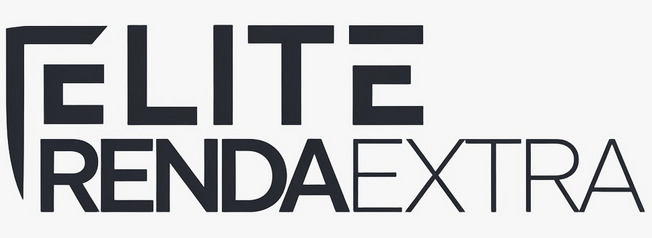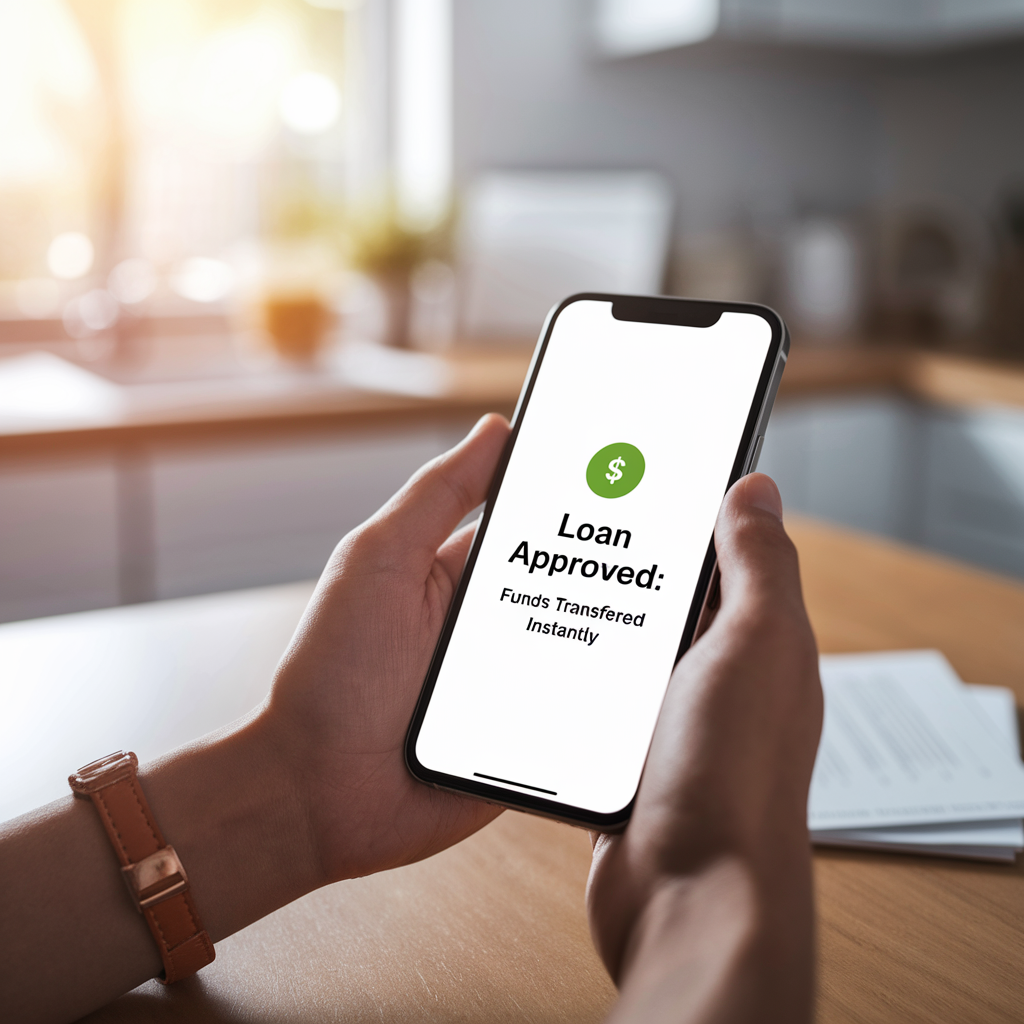Navigating financial urgencies can be a stressful experience. When unexpected expenses arise or opportunities present themselves with a tight deadline, the question “How can I get a loan quickly?” often comes to mind. Many individuals across the United States find themselves in situations where access to fast cash is not just a convenience, but a necessity.
Understanding the landscape of quick loan options available in the US is the first step towards making an informed decision. This exploration aims to shed light on various avenues for obtaining funds swiftly, considering the factors that influence eligibility and the nature of these financial tools. The goal is to provide a clear overview, helping you understand what might be involved when seeking rapid financial assistance.
Understanding the Need for Quick Funds
Life is unpredictable, and financial emergencies can strike anyone, regardless of how well they plan. The need for fast cash can stem from a multitude of scenarios, each carrying its own sense of urgency. Recognizing these situations and understanding your financial standing are crucial before seeking any form of loan.
Common Scenarios Requiring Fast Cash
Several common situations may prompt individuals in the United States to look for quick loan options. These can include:
- Medical Emergencies: Unexpected illnesses or accidents can lead to substantial medical bills that require immediate payment.
- Urgent Home Repairs: A leaking roof, a broken furnace in winter, or essential appliance failures often can’t wait.
- Car Repairs: For many, a vehicle is essential for commuting to work and daily life. Sudden breakdowns necessitate quick repairs.
- Unexpected Job Loss: While searching for new employment, fast cash can help cover essential living expenses.
- Avoiding Late Fees or Service Disruptions: Covering a crucial bill on time can prevent costlier penalties or the inconvenience of service interruptions.
- Consolidating High-Interest Debt: Sometimes, a loan can be used to consolidate other debts into a single, potentially lower-interest payment, though this requires careful consideration of terms.
Each of these situations underscores the importance of having access to funds without lengthy delays.
The Importance of Assessing Your Financial Situation
Before exploring loan options, a candid assessment of your financial health is vital. This involves understanding your income, monthly expenses, existing debts, and your credit history. Knowing how much you genuinely need to borrow and, more importantly, how much you can realistically afford to repay is fundamental. Over-borrowing or agreeing to repayment terms that strain your budget can lead to further financial difficulties. A clear financial picture helps in identifying the most suitable and responsible loan option.
Exploring Different Types of Fast Cash Loans in the US
The United States financial market offers a variety of loan products designed for speed. However, they differ significantly in terms of their structure, costs, and eligibility requirements. It’s important to understand these distinctions.
Personal Loans
Personal loans can be obtained from banks, credit unions, and online lenders. They can be unsecured (not requiring collateral) or secured. Online lenders, in particular, have streamlined the application process, often providing decisions within minutes and funding within a business day or two. These loans are typically repaid in fixed monthly installments over a set period, which can range from a few months to several years. Interest rates for personal loans vary widely based on creditworthiness, loan amount, and term length.
Payday Loans
Payday loans are short-term, high-cost loans, generally for $500 or less, that are typically due on your next payday. They are often marketed as a quick fix for emergency cash needs. While the application process can be very fast, often with minimal credit checks, payday loans come with extremely high Annual Percentage Rates (APRs) and fees. There is a significant risk of borrowers getting trapped in a cycle of debt, taking out new loans to cover old ones. Due to their high cost and potential for negative financial impact, they should be considered with extreme caution and only as a last resort after all other options have been exhausted.
Cash Advances (Credit Card)
Many credit cards offer the option of a cash advance, allowing cardholders to withdraw cash up to a certain limit. This can be a quick way to get funds. However, credit card cash advances usually come with higher APRs than standard purchases, and interest often starts accruing immediately, without a grace period. There might also be a transaction fee for each cash advance. It’s wise to check your credit card agreement for specific terms and costs.
Title Loans
Vehicle title loans are secured loans where you use your car title as collateral. The loan amount is typically a percentage of your car’s value. While they can provide fast cash, even for those with poor credit, title loans are very risky. They come with high interest rates and fees. If you default on the loan, the lender can repossess your vehicle, which can be a devastating loss, especially if it’s your primary mode of transportation.
Pawn Shop Loans
Pawn shop loans involve leaving an item of value (like jewelry or electronics) with a pawnbroker as collateral in exchange for a short-term loan. The loan amount is based on the item’s assessed value. If you repay the loan plus interest and fees by the agreed-upon date, you get your item back. If you don’t, the pawnbroker keeps and sells the item. Interest rates can be high, but your credit score is not typically a factor, and non-repayment doesn’t affect your credit report.
Lines of Credit
A personal line of credit is a flexible loan from a financial institution that has a defined amount of money that you can access as needed and then repay either immediately or over time. Interest is only paid on the amount you borrow. Once you repay the borrowed amount, you can borrow it again up to your credit limit. Some lenders offer quick approval for lines of credit, especially for existing customers with good credit.
Key Factors to Consider Before Applying
When you need cash quickly, it’s easy to overlook crucial details. However, taking a moment to consider these factors can save you from future financial distress.
Interest Rates and APR
The interest rate is the percentage of the principal charged by the lender for the use of its money. The Annual Percentage Rate (APR) is a broader measure of the cost of borrowing because it includes the interest rate plus other fees, such as origination fees or closing costs. Always compare APRs when looking at different loan options, as this gives a more complete picture of the total cost.
Loan Terms and Repayment Schedules
Understand how long you have to repay the loan (the term) and the structure of your payments (e.g., weekly, bi-weekly, monthly). Ensure the repayment schedule aligns with your income flow and that the periodic payment amount is manageable within your budget. Longer terms might mean lower monthly payments but could result in paying more interest over the life of the loan.
Fees and Penalties
Look out for various fees associated with loans. These can include:
- Origination fees: A fee charged by a lender for processing a new loan application.
- Late payment fees: Penalties for missing a payment deadline.
- Prepayment penalties: Some lenders charge a fee if you pay off your loan earlier than scheduled (less common with quick cash loans but good to check).
These fees can significantly increase the overall cost of borrowing.
Your Credit Score’s Role
Your credit score is a major factor influencing your loan eligibility and the interest rates you’ll be offered. Generally, a higher credit score can help you qualify for lower interest rates and more favorable terms. If you have poor credit, your options might be more limited and potentially more expensive. Some lenders specialize in loans for individuals with fair or poor credit, but it’s important to be extra vigilant about the terms offered.
Lender Legitimacy and Reputation
Unfortunately, not all lenders operate ethically. It’s crucial to verify the legitimacy of any lender before providing personal information or agreeing to a loan. Look for reviews, check with the Better Business Bureau (BBB), and ensure the lender is registered to operate in your state. Be wary of lenders who guarantee approval, demand upfront fees before processing your application (other than legitimate appraisal or application fees), or pressure you into signing immediately.
The Application Process: What to Expect
While the specifics vary by lender and loan type, the general process for obtaining a quick loan often follows a similar pattern, especially with online lenders.
Gathering Necessary Documentation
Lenders will require certain information to assess your application. Having these documents ready can speed up the process:
- Proof of Identity: Government-issued ID like a driver’s license or passport.
- Proof of Income: Pay stubs, bank statements, or tax returns.
- Proof of Address: Utility bill or lease agreement.
- Bank Account Information: For direct deposit of funds and sometimes for automatic repayments.
- Social Security Number: For credit checks and identity verification.
Online vs. In-Person Applications
Online applications are often favored for speed and convenience. Many lenders offer fully digital processes, from application to funding. This can be done from anywhere with an internet connection.
In-person applications at a bank branch or a physical payday loan store might be preferred by some, offering face-to-face interaction. However, this can sometimes take longer than online alternatives.
Approval Times and Fund Disbursement
For many “fast cash” options, particularly those from online lenders or payday loan providers, approval decisions can come within minutes or hours. If approved, funds can often be disbursed quickly, sometimes within the same business day or the next business day, usually via direct deposit into your bank account.
Alternatives to Quick Loans
Before committing to a loan, especially one with high interest, consider if any alternatives might be viable for your situation:
- Negotiating with Creditors: If you’re struggling to pay a bill, contact the creditor. They may offer a payment plan or a temporary deferral.
- Seeking Assistance from Non-Profits or Community Programs: Local charities, religious organizations, or community groups sometimes offer financial assistance or resources for those in need.
- Borrowing from Friends or Family: This can be an interest-free or low-interest option, but be sure to treat it as a formal loan with a repayment plan to avoid straining relationships.
- Selling Unused Items: Selling items you no longer need can generate cash quickly.
- Utilizing an Emergency Fund: If you have one, now might be the time to use it.
- Exploring Employer Advances or Assistance Programs: Some employers offer paycheck advances or hardship assistance programs.
Responsible Borrowing: A Final Thought
When faced with an urgent need for funds, the allure of “fast cash” can be strong. However, borrowing money is a significant financial commitment. The key is to approach it responsibly. This means only borrowing what you absolutely need and what you are confident you can repay without causing further financial hardship. Thoroughly research your options, carefully read all terms and conditions, and understand the total cost of any loan before you agree to it. Making an informed choice can help you navigate a temporary financial hurdle without jeopardizing your long-term financial well-being. Consider these options as tools, and like any tool, they must be used wisely and for the right purpose.

